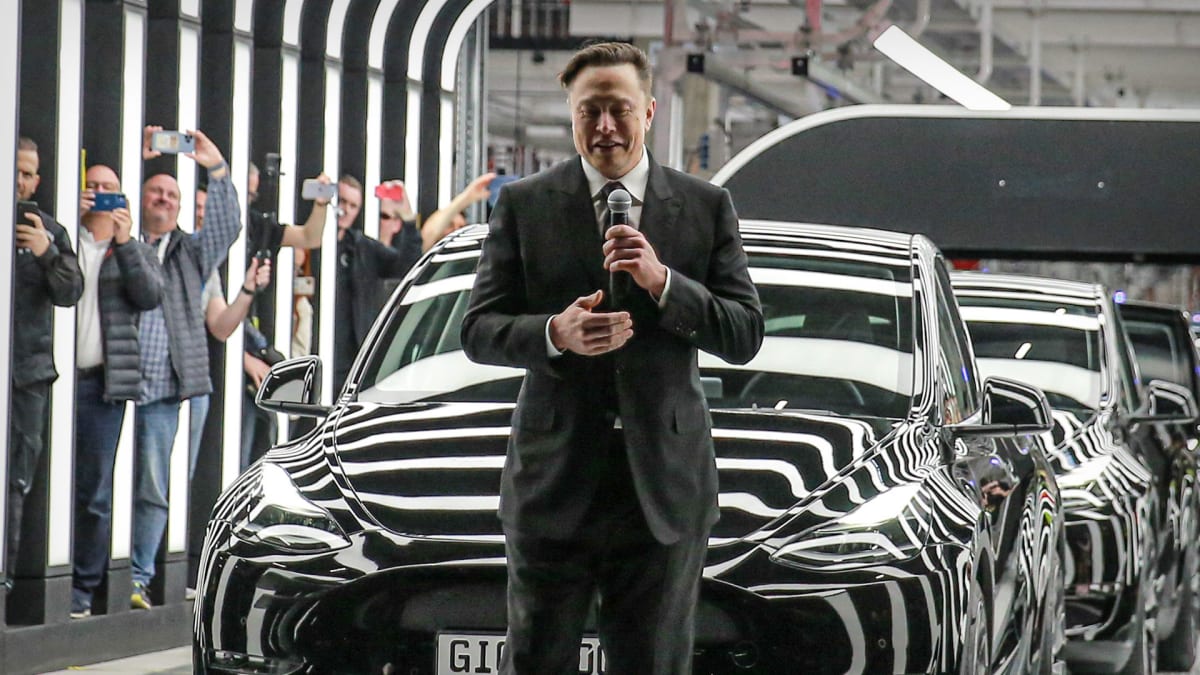
Elon Musk is preparing for an almost inevitable showdown with Apple (AAPL) and Alphabet (GOOGL), the parent company of Google.
The billionaire CEO of Tesla (TSLA), who completed the acquisition of Twitter on Oct. 27 at a hefty price of $44 billion, was quick to reshape the platform in his image.
He wants it to be innovative and provocative, molding it into the place where everything is said and decided. To achieve this, the Techno King, who describes himself as a "free speech absolutist", has opted for a lenient content moderation policy. Basically, Musk puts very few constraints on what is not acceptable on Twitter.
He reactivated the account of former President Donald Trump after 22 months of suspension, following the events of Jan. 6, 2021 on Capitol Hill.
The billionaire also reactivated accounts banned for anti-trans comments and for spreading hate speech. This was the case with the conservative-leaning satirical site the Babylon Bee and with conservative Canadian psychologist Jordan Peterson.
The Christian news site Babylon Bee, which leans conservative, was suspended last March by misgendering U.S. Assistant Health Secretary Rachel Levine, a transgender woman. The post which triggered the ban was: "The Babylon Bee’s Man Of The Year is Rachel Levine."
Differences About Hate Speech
As for Peterson, a right-wing commentator, he had posted a message about transgender actor Elliot Page. The tweet read "Remember when pride was a sin? And Ellen Page just had her breasts removed by a criminal physician.”
Twitter has also restored the account of Protect Texas Kids, a group which is against drag shows and LGBTQ events in Texas.
The problem is that this strategy clashes with the philosophy of Apple and Alphabet. As app distributors, Apple via Apple Store and Google via Google Play, both companies have strict policies regarding hateful speech.
"When people install an app from the App Store, they want to feel confident that it’s safe to do so — that the app doesn’t contain upsetting or offensive content, won’t damage their device, and isn’t likely to cause physical harm from its use," the iPhone maker says in the Apple Store guidelines. "If you’re looking to shock and offend people, the App Store isn’t the right place for your app."
"In assessing whether to include or remove apps from Google Play, we consider a number of factors including, but not limited to, a pattern of harmful behavior or high risk of abuse," Google says. "We identify risk of abuse including, but not limited to, items such as app- and developer-specific complaints, news reporting, previous violation history, user feedback, and use of popular brands, characters, and other assets."
In view of these guidelines from the iPhone manufacturer and the Internet giant, it is reasonable to think that we are heading toward a head-on collision between them and Musk's Twitter. This is what one of his fans pointed out to him.
'No Other Choice'
In response, Musk acknowledged that there was a risk that Apple and Google might decide not to further distribute Twitter due to violations of their rules. He then issued a preemptive threat to the two giants of Silicon Valley, by saying that he would manufacture a smartphone, if it came to that, in order to distribute Twitter.
"If Apple & Google boot Twitter from their app stores, @elonmusk should produce his own smartphone," the Twitter user said. "Half the country would happily ditch the biased, snooping iPhone & Android. The man builds rockets to Mars, a silly little smartphone should be easy, right?"
Musk replied.
"I certainly hope it does not come to that, but, yes, if there is no other choice, I will make an alternative phone," the tech mogul announced.
He didn't provide further details, including which of his many companies would build the phone.
The arrival of Musk in the smartphone industry would be a thunderclap. While it's hard to imagine how it would challenge existing players, and especially Apple, Musk would get a head start with an image and reputation as an innovator, established through Tesla.
He also has a myriad of millions of fans around the world and is very present in China, the country where Apple manufactures its phones and where Tesla also has a giant factory. It is therefore not certain that the group, based in Cupertino, Calif., would welcome competition in a country where Musk has already an established footprint.
The rivalry between Apple and Tesla could take a new turn. For many years, analysts and experts have expected Apple to compete with Tesla by developing an electric vehicle.







